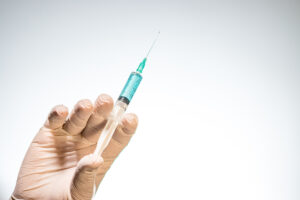
Cardiovascular diseases have been marked as one of the most serious and common threats to health. These diseases can often be prevented from setting in, or their worsening can be slowed down, by a change in lifestyle. However, there are times when heart surgery is the only option left to maintain health. In proportion, just as the surgery of the heart is necessary to regain health; post-surgery home care is equally significant for complete recovery. There are a number of reasons for post-surgery home care; these include:
- Managing pain
- Preventing infection
- Ensuring recovery of the patient
- Accelerating the process of rehabilitation of the heart
- Minimizing complications and risks associated with surgery
Home Care After Open-Heart Surgery
- Adequate Rest
- For the initial weeks of surgery, let your body rest as much as it wants. Allow it time for recovery.
- Sleeping completely and qualitatively in a relaxed environment is very much important.
- General Health Monitoring
- Keep your blood pressure in check.
- Keep the level of cholesterol as low as possible.
- Avoid drugs and actions that accelerate heartbeats.
- In diabetic patients, keep a close watch on blood sugar levels.

- Medication
- The medicine is to be taken on time and exactly in the amount prescribed by your doctor. These drugs are the vital doses for the healing process and usually include painkillers, blood thinners, blood pressure medicines, and other essential drugs.
- In no way should the dose or type of drug be changed without consulting the doctor.
- Avoid taking over-the-counter medications.
- Healthy Nutrition
- Healthy and organic nutrition is one of the important points of post-surgical care.
- Take the following only in moderation and gradually reduce them:
- Salt
- Unhealthy fats and oils
- Processed meats
- Artificial sugars
- Coffee and energy drinks
- Processed foods
- High-fat dairy products
- High-cholesterol foods
- The following are heart healthy and should be added to the diet:
- Healthy proteins
- Red and green fruits and vegetables
- Nuts and seeds
- Whole grains
- Healthy fats
- Low-fat dairy products
- Adequate intake of water and fluids
- Intake of potassium-enriched, vitamin D, and omega-3 fatty acid food
- Weight Management
- Keep your weight within the normal range.
- For those with a tendency to gain weight with sedentary living, special diets must be considered.
- Wound Healing
- The incidence of infection is greater in heart surgery because opening the chest is part of the surgery.
- Keep the wound and the surrounding area clean and dry.
- Take the course of prescribed antibiotics by your doctor to avoid infection.
- Follow your doctor’s instructions about dressing changes and the management of wounds.
- Inform your doctor without delay if you develop any signs of infection, such as redness, swelling, or unusual discharge.
- It is better to avoid having lengthy baths or going swimming until you are healed properly.
- Do not apply any type of cream, ointment, or healing products on the wounds without consulting your doctor.
- Respiratory Care:
- Respiratory therapy typically commences right from day one post-surgery and continues for several weeks.
- These breathing exercises are for the strengthening of breathing, prevention of lung infection, building up of lung fluid, and recovery, according to the patient’s condition and doctor’s advice.
- These can be performed by the patient through deep breathing or with the aid of an incentive spirometer.
- Patients are also taught proper and safe coughing techniques. It can be made easier on the patient and less painful if he holds a pillow to his chest while coughing.
- Psychological Interventions:
- Utilize evidence-based stress-reduction techniques, including prayer, meditation, and yoga.
- Draw from resources of emotional well-being from family and friends.
- Meet with a counselor or psychologist if necessary.
- Avoid bad habits
such as smoking or the use of tobacco products. These are greatly going to affect your heart and lungs. Never drink alcohol; this may interfere with your medication and worsen your blood pressure. Do not sit or lie down for a long period of time without getting up to move around. Take that time to stand up and walk around slowly every few hours.
- Light Exercises
- Do light exercises like walking, and slowly make them longer and a little strenuous over time.
- Avoid lifting heavy things or doing hard physical labor until your doctor advises.
- Avoid heavy exercises such as running, jumping, and heavy training for some time since the chest bones take quite a while to heal properly.
- Try also to limit long standing activities or chores that would put pressure on you, like sweeping, washing, and cooking for several hours.
- You can start doing the resistance exercises with light weights, for example, 1-2 kg, after your doctor allows you to begin rebuilding your muscle strength slowly.

- Visiting the Doctor
- Keep your doctor informed and attend follow-up visits as required.
- The purpose of frequent check-ups is to detect and treat any complication or abnormality in its early stages.
- Consult your doctor without any delay in case of strong chest pain, extreme difficulty breathing, high temperature, or any other symptoms that seem abnormal.
- Recovery information should be sought only from a credible source, that is, your doctor, and non-experts’ advice should not be paid heed to.
- Body Posture
- Sit and stand with proper technique for preventing pressure on the chest and overall skeleton.
- Wear a medical brace as advised by your doctor to give support. The brace applies controlled compression to the chest, thereby limiting movements of the chest. This will help you stay away from complications like bleeding and infection of tissues and manage pain while healing your wound.
Final Thoughts
These tips will help you recover faster and more safely after heart surgery and avoid complications. As such, cooperation from the patient, his family, and the medical team is necessary for the best possible results subsequent to heart surgery. Always consult your doctor prior to making any changes in your daily routine. This is a great opportunity to recover and rehabilitate onto a healthier life style with the discontinuation of unhealthy habits. Consultation with cardiovascular and nutrition specialists will be the safest and best option. For the specialized clinic of Dr. Jam along with the best cardiologists and nutritionists, we are here to support your health.
References
- https://www.webmd.com/heart-disease/heart-disease-recovering-after-heart-surgery
- https://www.healthline.com/health/heart/diet-after-heart-bypass-surgery#nuts
- https://www.uptodate.com/contents/postoperative-care-after-cardiac-surgery






No comment yet, add your voice below!